As with previous ones, army puts explosives in passage to ensure it can’t be used; UN peacekeepers confirm existence of first two tunnels
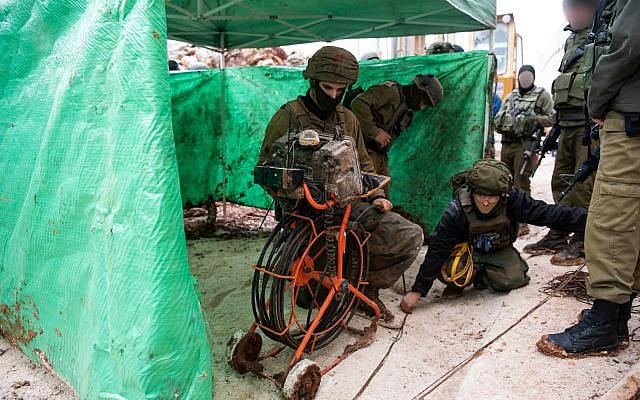
The Israel Defense Forces said it uncovered a Hezbollah cross-border attack tunnel that penetrated Israeli territory from southern Lebanon on Tuesday, the third passageway found since the military launched a digging operation on the border last week.
The army said it had drilled into the passage and planted explosives inside it to ensure it cannot be used.
This was the third tunnel that the IDF has found inside Israeli territory as part of its Operation Northern Shield to find and destroy such subterranean infrastructure.
The army has also said it is aware of the existence of other tunnels, but has yet to fully expose them.
Troops have been operating on the border to find and destroy the tunnels since the launch of Operation Northern Shield last week, raising tensions on the potentially volatile frontier.
The first tunnel was found south of the town of Metulla, near the Lebanese border. The IDF initially refused to reveal the locations of both subsequent tunnels found. The military has censored much of the information surrounding the operation citing national security.
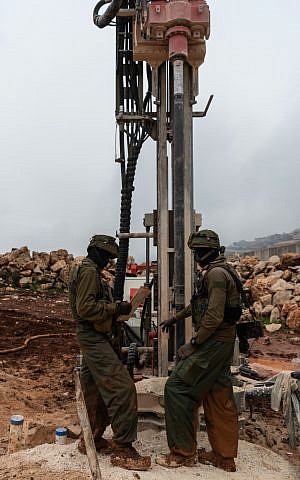
However, after the United Nations peacekeeping Force UNIFIL said in a statement that the second tunnel was located just north of the first but in “the same general area,” the military confirmed that this was the case.
The US-based Fox News reported that the third tunnel was found outside the Israeli community of Yiftah, across the border from the Lebanese village of Meiss al-Jabal.
“The tunnel is within IDF control and does not present a threat,” an army statement said of the third tunnel on Tuesday.
The military warned that “anyone who enters it from the Lebanese side puts his life at risk.”
The border operation, which is expected to include the IDF destroying whatever tunnels are found, has raised the specter of renewed conflict between Israel and Hezbollah, which the IDF sees as one of its primary military threats in the region.
The military said it believes the tunnels were meant to be used by the Iran-backed terror group as a surprise component of an opening salvo in a future war, to allow dozens or hundreds of terrorists into Israel, alongside a mass infiltration of operatives above-ground and the launching of rockets, missiles, and mortar shells at northern Israel.
IDF soldiers were mapping and studying the new tunnel, which the army called another “serious violation of Resolution 1701 and the State of Israel’s sovereignty.”
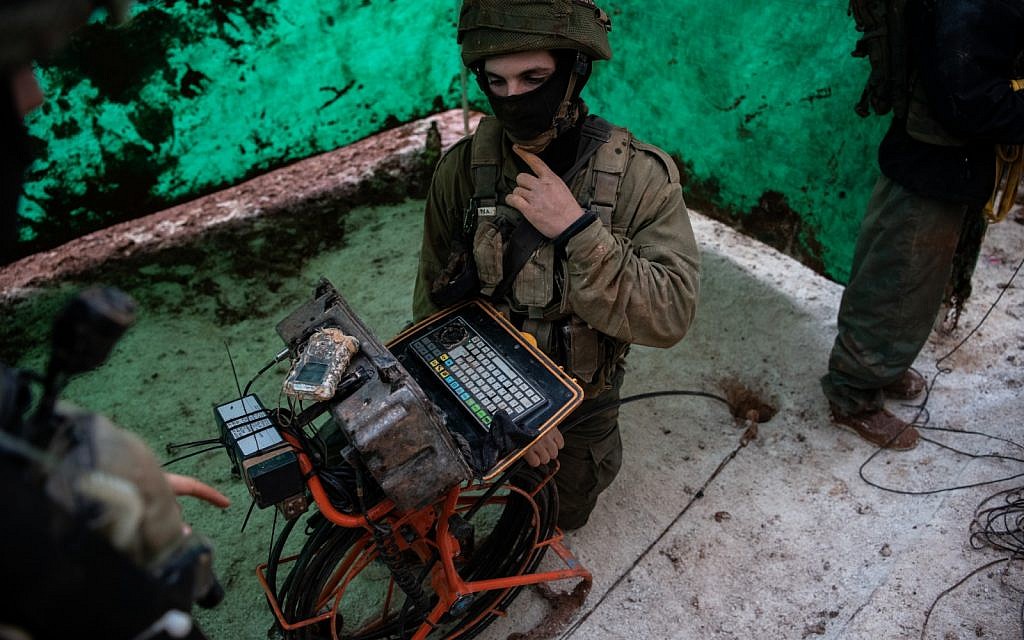
United Nations Resolution 1701 ended the 2006 Second Lebanon War and required all armed groups besides the Lebanese military to remain north of the country’s Litani River.
The army said the Lebanese government was responsible for the tunnels being dug inside its territory and said it was “continuing with its approved plans to continue finding and exposing terror tunnels.”
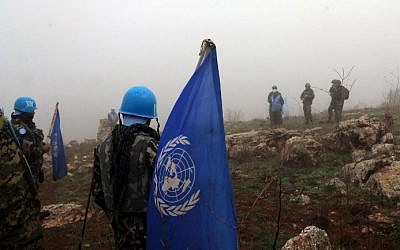
The specific number of tunnels that Israel believes were dug from Lebanon, as well as other information about the operation, also cannot be published by order of the military censor.
So far, the UN peacekeeping force UNIFIL has confirmed the existence of the first and second tunnels. As of Tuesday afternoon, it had yet to comment on the third.
“UNIFIL is continuing to follow up on this issue in close coordination with the Lebanese Armed Forces,” the commander of the peacekeeping force, Maj. Gen. Stefano Del Col, said in a statement.
The military has been closely coordinating its efforts with UNIFIL and, through the peacekeeping force, the Lebanese Armed Forces in order to prevent misunderstandings and potential clashes.
Prime Minister Benjamin Netanyahu has said the operation will go on for as long as needed, and called on the international community to respond to the attack tunnels by imposing additional sanctions on Hezbollah.
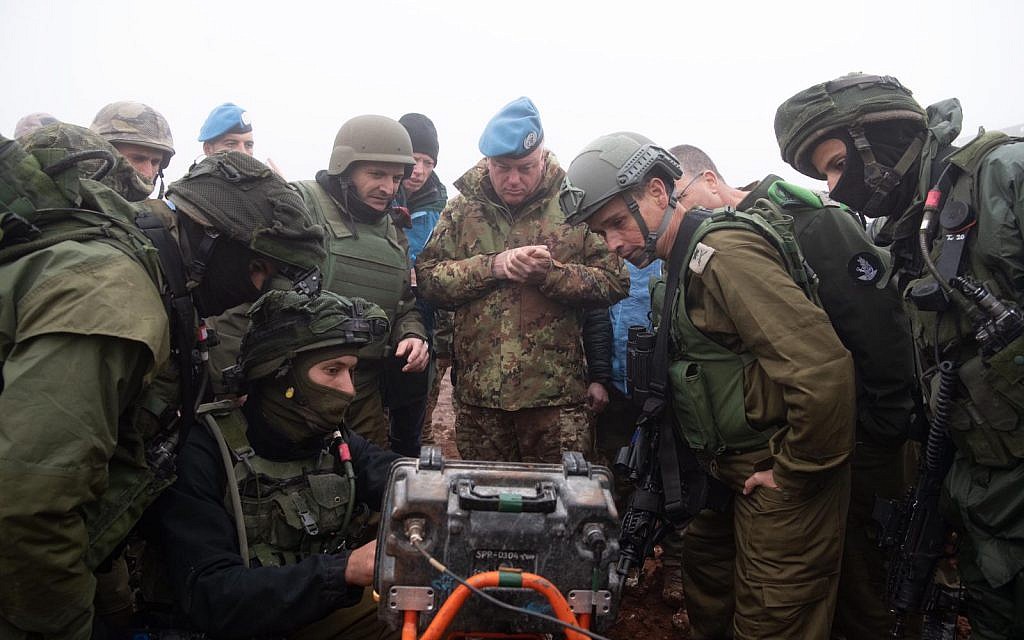
On Tuesday, a delegation of senior Israeli military officers flew to Moscow in order to discuss the operation and other matters with their Russian counterparts.
Netanyahu also said he will demand that the UN Security Council discuss the matter.
The operation is taking place close to Lebanese territory, sometimes on the north side of a border wall, albeit still inside Israeli territory.
An IDF incursion into Lebanon could spark a major confrontation with Hezbollah, which bills itself as a defender of Lebanon against Israeli aggression.
Israeli officials have indicated that the IDF may operate within Lebanese territory, if necessary, to destroy the tunnels. Lebanese President Michel Aoun, a Hezbollah ally, said Tuesday that the United States assured him that Israel has “no aggressive intentions” with its Operation Northern Shield.
Israel has fought two wars and a carried out a number of operations against Hezbollah in southern Lebanon in recent decades.
As reported by The Times of Israel
